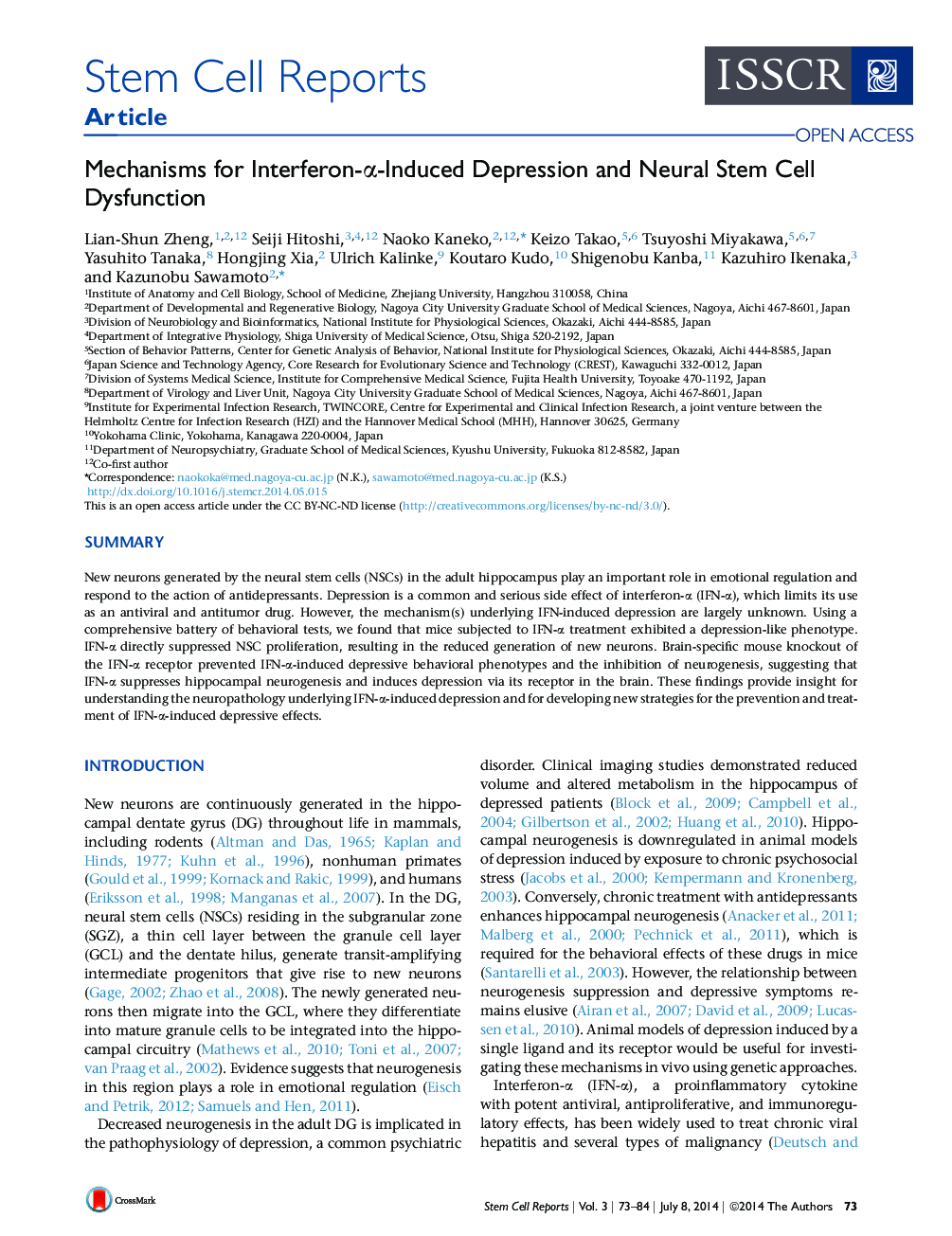| Article ID | Journal | Published Year | Pages | File Type |
|---|---|---|---|---|
| 2093382 | Stem Cell Reports | 2014 | 12 Pages |
•IFN-α-treated mice show a depression-like phenotype in a behavioral test battery•IFN-α directly suppresses NSC proliferation in adult hippocampus•IFN-α suppresses neurogenesis and induced depression via its receptor in the brain
SummaryNew neurons generated by the neural stem cells (NSCs) in the adult hippocampus play an important role in emotional regulation and respond to the action of antidepressants. Depression is a common and serious side effect of interferon-α (IFN-α), which limits its use as an antiviral and antitumor drug. However, the mechanism(s) underlying IFN-induced depression are largely unknown. Using a comprehensive battery of behavioral tests, we found that mice subjected to IFN-α treatment exhibited a depression-like phenotype. IFN-α directly suppressed NSC proliferation, resulting in the reduced generation of new neurons. Brain-specific mouse knockout of the IFN-α receptor prevented IFN-α-induced depressive behavioral phenotypes and the inhibition of neurogenesis, suggesting that IFN-α suppresses hippocampal neurogenesis and induces depression via its receptor in the brain. These findings provide insight for understanding the neuropathology underlying IFN-α-induced depression and for developing new strategies for the prevention and treatment of IFN-α-induced depressive effects.
